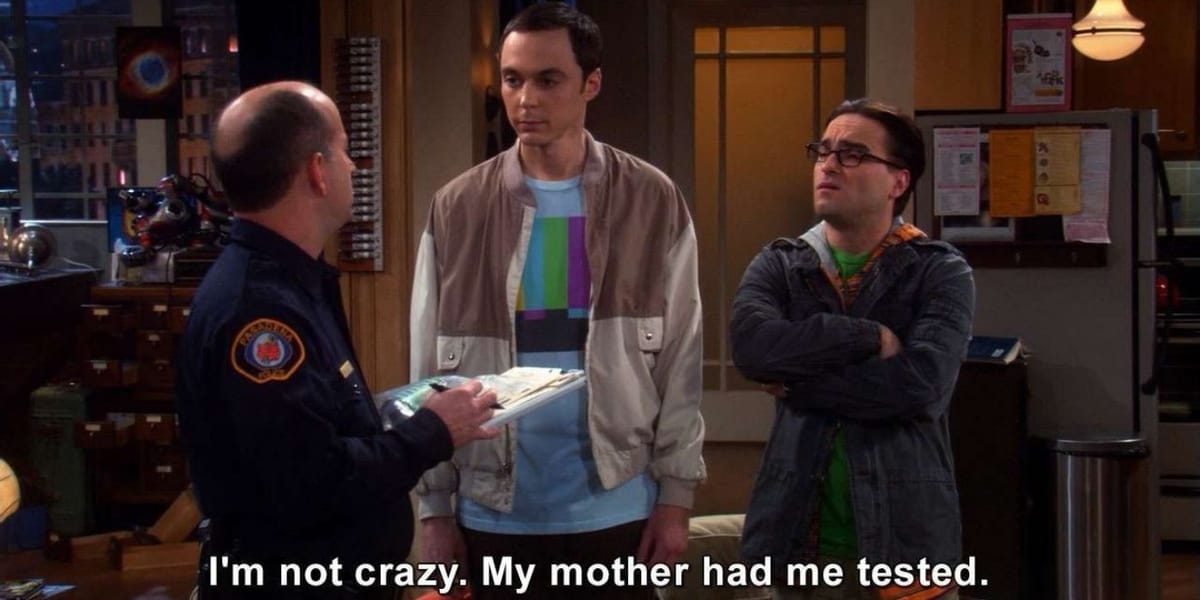I've Been Tested
A heady mix of time alone to think, the slow creep of age, lingering anxiety about what the stroke may have left behind, and some of the best therapy I’ve ever had has cast a sharper light on things I used to brush off.

Well, a month between posts is kind of what I expected when I started writing again. Good to know I’m consistent in my own estimation.
There’s been no shortage of things worth writing about, but lately, I’ve had to pause and ask whether I should write about them. In my 30s, I was a social media open book because I knew it meant “hits and engagement,” but now I’m more selective about what I keep close to the chest. Still, something’s been gnawing at me. So I’ve decided to write what feels like just the right amount.
TL;DR: I’m currently undergoing testing to determine whether I officially have high-functioning Autism.
I’ll never publicly share the diagnosis. If you know me, you’ve probably already formed your own assessment—and depending on how you know me, your impression will likely be different, and probably accurate within that context. I’ve come to understand that I’m a master of masks.
A heady mix of time alone to think, the slow creep of age, lingering anxiety about what the stroke may have left behind, and some of the best therapy I’ve ever had has cast a sharper light on things I used to brush off. On their own, they felt trivial—quirks, preferences, maybe just personality. But in reflection, patterns have begun to surface, subtle but insistent. The tipping point was something I mentioned in my last stroke update: my overwhelming sensitivity to sound, especially the sharp, chaotic clatter of a basketball or volleyball court.
Therapy helped me realize that this sensitivity has always been there. I just never considered it unusual. I avoided those environments and chalked it up to not being a sports fan. But this sensitivity—along with a host of other traits I’ve traced across the years—led me to wonder how it all fits together. Because, if you’ve watched enough Big Bang Theory, it’s like I’ve got a little bit of each guy in me, but mostly lean into Sheldon Cooper territory.
- I have “a spot” in every room where I habitually spend time.
- I can always tell when people are happy, but I have a much harder time reading other emotions. I usually default to assuming everyone’s mad at me or that I’ve done something wrong—so I go into overdrive trying to keep them happy and "get out of trouble". Which, shockingly, is both physically and emotionally unsustainable.
- About 15 years ago, I got a performance review where a client described me as “acerbic” (still bothers me, JJ). I’ve tried to soften my edges since then, but at the time, I genuinely thought I was following good advice: that great creatives fight fiercely for their ideas. I took that as a license to remind clients that I was the creative expert. For any young creatives reading this: don’t do that. It might be fundamentally true, but it doesn’t help anyone. I also bought into another misguided mantra—that ad people should switch agencies every three years*. That one’s not great either.
- My knees are always bouncing, and my hands are constantly tapping or wringing. Anxiety just turns the dial up to 11.
- I’ve also got a bit of an internal counting thing**. Filling the ice in my water bottle is always four. Putting water in the dog dish? That’s twelve. I realized just now that I subconsciously avoid odd numbers.
- Have you ever tried to talk to me about something I’m passionate about?
Individually, none of these things prove anything. Lots of people do some of them. But when I started connecting memories across my life, it made a compelling case for getting tested. I’m halfway through the process now. That first questionnaire? Boy, howdy—it surfaced a lot of things I’d never considered.
I’m sure your first thought is the same as mine: “Good job working on yourself, but what are you going to do with this information? What can you do?” And the honest answer is: I don’t know.
There’s a big part of me that will feel relieved either way. Because at least I can say I’ve been tested—and that brings some closure to parts of my self-discovery. But what if I am on the spectrum, and I find that out at 52? There are so many things from childhood that could’ve gone differently. In some cases, life-altering things—if we had only known. A whole new trove of existential questions.
I don’t want to be haunted by that. And it’s up to me not to be. I hope I can remember that.
I also don’t want anyone to treat me differently if it turns out I’m autistic. You already treat me based on your assumptions and experiences with me—and honestly, that’s fine. It works. Let’s keep it that way.
And maybe, more than anything, this journey isn’t about getting an answer—it’s about giving myself permission to ask the question. About this, or anything related to my mental health, in a way that goes deeper than solving an immediate problem—for the first time in my life. To be curious. To be kinder to the version of me that didn’t know, and to whatever version is coming next.
* Ironically, the same person who had to tell me I was acerbic gives the best advice on this: “Just worry about the work on your desk today.” Still trying to live by that one.
** Rereads of this article to make sure it was perfect? Twelve.




